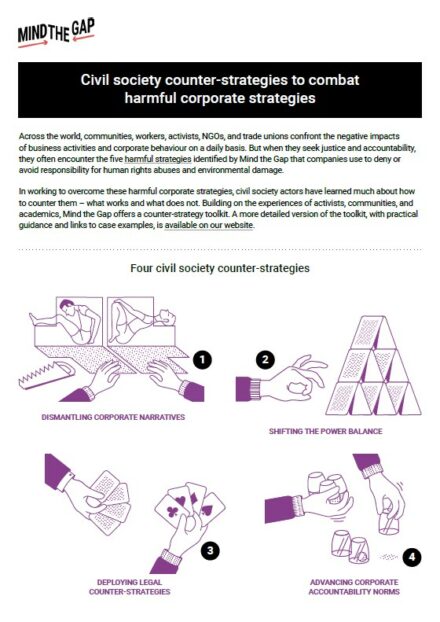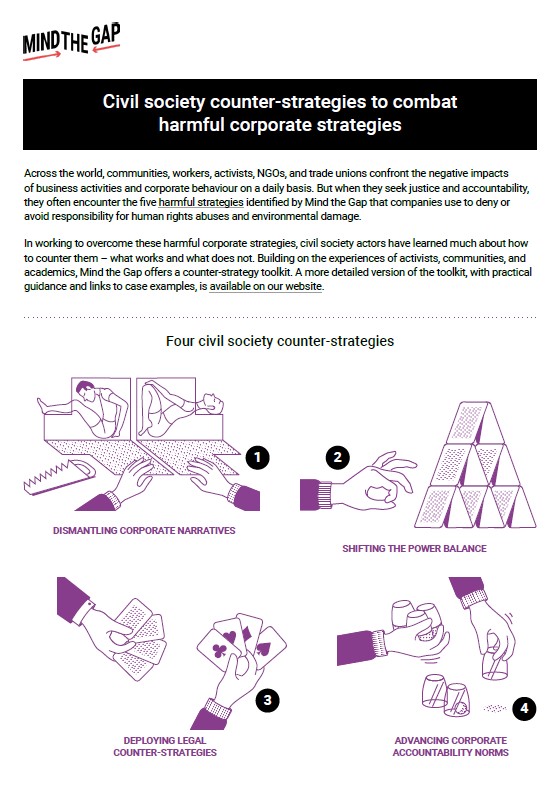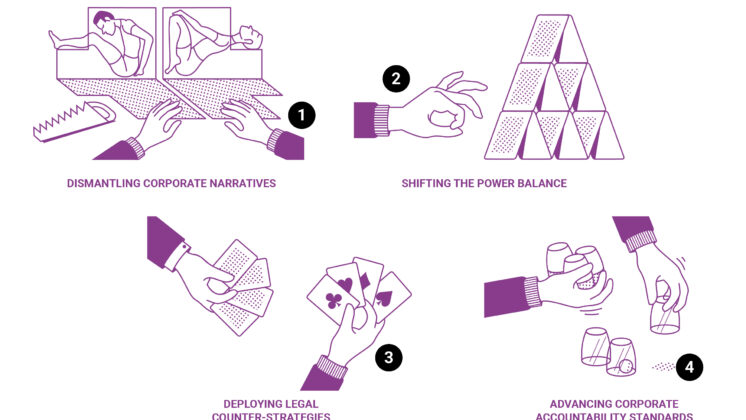In some cases, once a company is associated with human rights abuses or environmental harm through its business relationships, they will use a strategy of disengagement in order to avoid having to mitigate the impact and/or redressing the harm.
CASE STUDY: Mintails’ strategies of disengagement in South Africa
Such irresponsible disengagement can take many forms. For example, disengagement can involve selling or shutting down operations of the subsidiary or local branch of the company; or the termination of supply contracts that should have been used as leverage to help improve working conditions; or divesting from an investment that has caused negative impacts. Companies will then claim to have fixed “their” problem since they are no longer associated with human rights violations taking place.
Disengaging in this way can itself cause or contribute to serious human rights impacts, and limit the ability of victims to seek remedy. The strategic dissolution of a (subsidiary) company often eliminates the possibilities of oversight by or accessibility to institutions such as a development bank or overarching grievance mechanism. When it comes to closing down operations, companies frequently claim that this has been done for other reasons, such as financial problems.
No cut and run from human rights abuse
The international normative frameworks on business and human rights are made up of the Organisation for Economic Co-operation and Development (OECD) Guidelines and the UN Guiding Principles on Business and Human Rights. They are clear that – when a company is linked to human rights abuses through its business relations – the company should first engage with the business partner and use its leverage in order to address the adverse impacts. If those attempts are unsuccessful, the company should consider disengagement, and take into consideration the adverse impacts of that disengagement decision as well.[1] Regardless of the reasons for disengagement, however, under the existing normative framework, companies cannot disengage from their responsibility to address the impact they had been linked to, and they need to remedy those impacts if the company had caused or contributed to them.
[1] Mariëtte van Huijstee, Lydia de Leeuw, and Joseph Wilde-Ramsing, Should I stay or should I go?: Exploring the role of disengagement in human rights due diligence (Amsterdam: Stichting Onderzoek Multinationale Ondernemingen (SOMO), 2016), 8., https://network.somo.nl/should-i-stay-or-should-i-go-2/ (accessed November 11, 2019).










